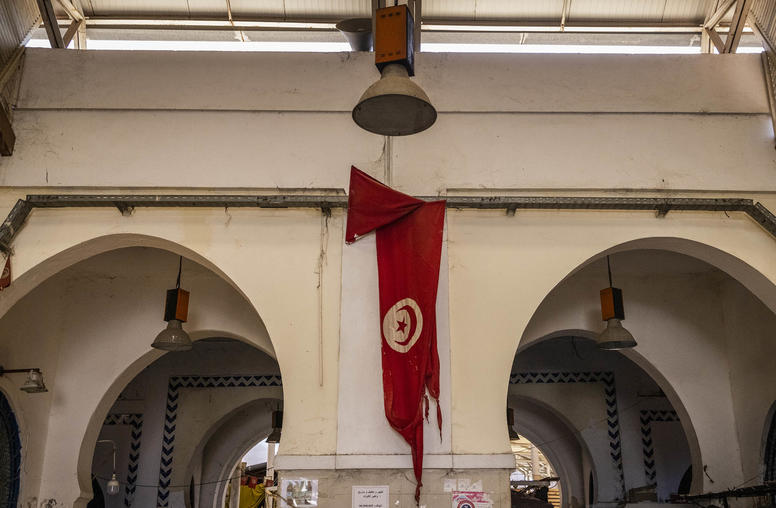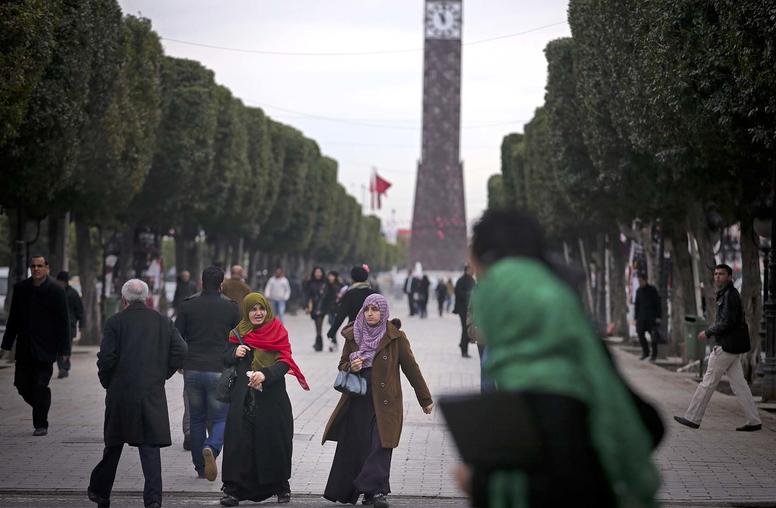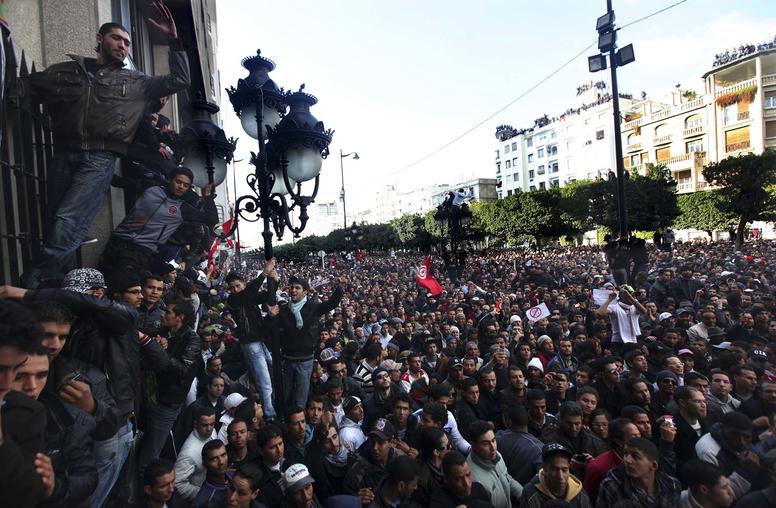Publications
Articles, publications, books, tools and multimedia features from the U.S. Institute of Peace provide the latest news, analysis, research findings, practitioner guides and reports, all related to the conflict zones and issues that are at the center of the Institute’s work to prevent and reduce violent conflict.

Tunisia’s new constitution expands presidential power. What’s next for its democracy?
A year after Tunisian President Kais Saied began a series of moves that expanded presidential powers, a new constitution further empowering the presidency has been approved by referendum. Amid a dire economic crisis, many Tunisians expressed support for Saied’s moves, as the promise of the 2011 uprising evaporated over the last decade. While the referendum passed with 94 percent of the vote, only 30 percent of Tunisians participated. Once heralded as the sole democratic success of the Arab uprisings, Tunisia’s democratic future trajectory is more uncertain than ever following the constitutional referendum.

Leo Siebert on the State of Tunisia’s Democracy
Last summer, “Tunisians had really reached a breaking point in their frustration with the previous government” and welcomed President Kais Saied’s dissolution of parliament, says USIP’s Leo Siebert. But that hope “is now shifting to apprehensiveness that things might not be going in the right direction.”

What’s Next for Tunisia’s Transition?
Long heralded as the sole success story of the Arab uprisings, Tunisia was thrown into political tumult on July 25 when President Kais Saied dismissed the prime minister, suspended parliament and removed politicians’ immunity from criminal prosecution. The decision followed days of protest and long-term malaise, with Tunisians angered over the government’s COVID response, endemic corruption, a lagging economy and, more broadly, the inability of the post-Ben Ali political system — particularly political parties — to deliver for citizens. While many Tunisians supported Saied’s move, they and the international community await what comes next and how it will impact the North African country’s long-term political and economic trajectory.

Where Does Tunisia’s Transition Stand 10 Years After Ben Ali?
The story by now is well known. Mohamed Bouazizi’s self-immolation in December 2010 sparked an unprecedented wave of protests across Tunisia and the broader region. Less than a month later, the country’s longtime dictator, Zine El Abidine Ben Ali, fled to Saudi Arabia. That was 10 years ago today. And while Tunisia is often lauded as the “lone success story” of the uprisings that swept across the region, its democratic transition remains in limbo. A decade later, Tunisians have seen hard-won improvements in political freedoms, but a lagging economy and sclerotic politics have stunted the realization of many of the protesters’ demands—and kept them in the streets.

Tunisia’s Transition Hits a Rough Patch Following COVID Lockdown
Since uprisings swept the Middle East and North Africa in 2011, Tunisia has long been regarded as the lone democratic success story. But nearly 10 years later, volatile party politics and authoritarian legacies continue to plague the transition. The October 2019 election cycle, marked by low voter turnout, demonstrated Tunisians deep disenchantment with the political class for its failure to address the grievances that sparked the ouster of longtime dictator Zine El Abidine Ben Ali. After the elections, a government was not formed until February 2020. But months later, Prime Minister Elyes Fakhfakh resigned over allegations of conflicts of interest. In recent weeks, the political landscape has shifted rapidly. USIP’s Leo Siebert examines the political wrangling and Tunisia’s post-election political struggles.

Tunisia’s Split Parliamentary Vote Could Force Unconventional Alliances
Tunisia’s busy election season continued October 6 with parliamentary elections, the country’s third legislative vote since the 2011 uprising that ousted longtime dictator Zine El Abidine Ben Ali. Only a few weeks ago, voters went to the polls for first-round presidential elections. The results of that vote demonstrated Tunisians’ disenchantment with the ruling establishment. This past Sunday’s vote saw a host of new parties and movements voted into parliament, further complicating the formation of a new government. USIP’s Leo Siebert discusses who could form a ruling coalition and how the parliamentary elections could impact the second-round presidential polls on October 13.

Leo Siebert on Tunisia’s Presidential Elections
Last week, Tunisians voted for “a wholesale dismissal of everyone who’s governed before” in the first round of presidential elections, said USIP’s Leo Siebert. And with parliamentary and runoff elections upcoming, a string of free and fair elections could help Tunisia “prove to the world, and be a model to its neighbors, that democracy is possible.”